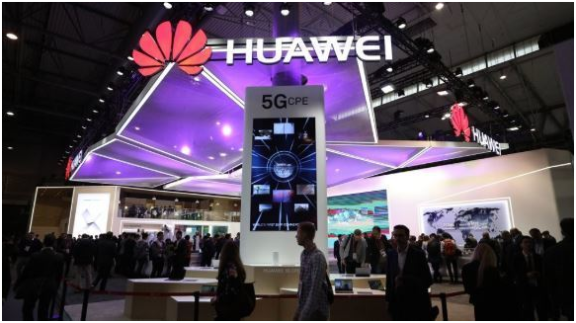Samsung Electronics and SK Hynix on Alert over U.S. Sanctions Against Huawei

Samsung Electronics and SK Hynix are on alert as the U.S. government announced on May 15 (local time) that it will limit the supply of semiconductors made with U.S. technology to Huawei, a Chinese telecommunications equipment company.
The U.S. Department of Commerce said in a statement that it is amending its regulations to “narrowly and strategically target Huawei’s acquisition of semiconductors that are the direct product of certain U.S. software and technology.”
“This announcement cuts off Huawei’s attempt to undermine U.S. export controls,” the statement said.
Accordingly, foreign companies that manufacture semiconductors using U.S. equipment must obtain a permit from the U.S. government to supply certain products to Huawei. The Trump administration blacklisted Huawei in May 2019 and limited its dealings with U.S. companies, saying that Chinese government authorities could use Huawei’s equipment for espionage. The U.S. Department of Commerce criticized Huawei for designing semiconductors using U.S. software and technology.
In this regard, it will have some impact on Samsung Electronics and SK Hynix which supply DRAMs and NAND flashes to Huawei. Samsung Electronics has also named Huawei as one of its top five corporate customers in its business reports in the past two years. “The U.S. move appears to be taking aim at HiSilicon, a fabless subsidiary of Huawei,” an industry insider said. “As the United States is seeking to keep Chinese fabless companies in check, semiconductor companies related to Tsinghua Unigroup of China such as UniSOC are likely to be subject to U.S. sanctions.”
The U.S. government’s move to restrict semiconductor supplies to Huawei, however, is unlikely to threaten Korean memory semiconductor companies’ business with the Chinese company, as they can continue to supply their products to it by obtaining a permit from U.S. authorities. Some experts say that pressure on the overall memory semiconductor industry will be limited.
By contrast, TSMC and Chinese fabless and foundry companies are expected to be hit by the announcement. SMIC, China’s largest foundry company, is having trouble introducing related equipment from ASML, the exclusive supplier of extreme ultraviolet (EUV) equipment in the Netherlands. Since ASML acquired its core technology for light sources of EUV equipment through the acquisition of Cymer, an American company, it is not possible to supply EUV equipment to SMIC without permission from U.S. authorities.
The U.S. move is expected to make it difficult for Huawei to mass-produce high-end products of its Kirin series application processors through TSMC. If Huawei cannot use TSMC equipment, it will have no choice but to rely on SMIC, a Chinese company, but SMIC’s highest manufacturing line is a 14-nm process. Samsung Electronics, the world’s second-largest foundry company, also owns 5-nm technology, but it cannot manufacture Huawei products because of U.S. sanctions.
Huawei can find a breakthrough by purchasing APs from other companies, but this increases its cost burden. “We can purchase semiconductors (APs) from Samsung Electronics, MediaTech, UniSOC among others,” Huawei chairman Xu Zhijun said in an interview with a foreign media outlet in April. But it is unclear whether Huawei will actually purchase APs from these companies.
For this reason, some analysts say that HiSilicon is looking for a way out by transferring semiconductor design technology to UniSOC, a subsidiary of Tsinghua Unigroup, but it is highly likely that the next target of the U.S. government will be Tsinghua Unigroup. Both Huawei and Tsinghua Unigroup are actually classified as state-owned enterprises run by the Chinese government.
Chinese fables companies’ technology thefts can be seen in the sales of ARM of the U.K., which is the exclusive supplier of mobile AP design assets (IP). Softbank in Japan acquired ARM for 23.4 billion pounds in 2016, expecting to make huge profits with IP-related licenses in the future. Yet ARM’s sales in 2019 amounted to only US$418 million. Chinese companies are designing APs based on ARM’s IP, but ARM sales are low because the Chinese companies are not paying license fees properly, some semiconductor industry experts say.
Under these circumstances, TSMC of Taiwan, the world’s largest foundry company, has decided to invest US$12 billion to set up a state-of-the-art semiconductor factory in Arizona, the United States. Industry analysts say that Samsung Electronics will have to respond to it by making an additional investment in its Austin factory in the United States.
Meanwhile, Huawei disappeared from Samsung Electronics’ list of five major customers. According to Samsung Electronics’ first quarter business report on May 16, Apple, AT&T, Deutsche Telecom, Softbank, and Verizon were the five major corporate customers of Samsung Electronics. All four except Apple are major telecommunications companies in the United States, Japan and Germany. They purchase smartphones or 5G communication equipment from Samsung Electronics.